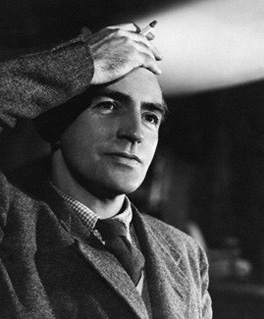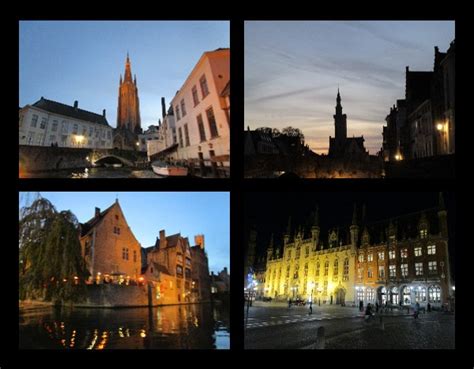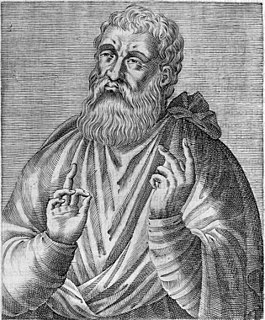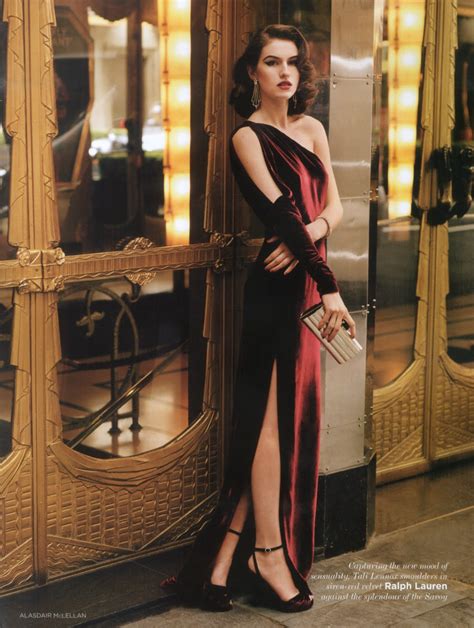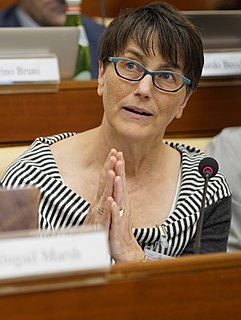A Quote by Christopher Fry
The first of our senses which we should take care never to let rust through disuse is that sixth sense, the imagination. I mean the wide-open eye which leads us to see truth more vividly, to apprehend more broadly, to concern ourselves more deeply, to be, all our life long, sensitive and awake to the powers and responsibilities given to us as human beings.
Related Quotes
Too much apparatus, designed to guide us in experiments and to supplement the exactness of our senses, makes us neglect to use those senses...The more ingenious our apparatus, the coarser and more unskillful are our senses. We surround ourselves with tools and fail to use those which nature has provided every one of us.
The mind is very wild. The human experience is full of unpredictability and paradox, joys and sorrows, successes and failures. We can't escape any of these experiences in the vast terrain of our existence. It is part of what makes life grand-and it is also why our minds take us on such a crazy ride. If we can train ourselves through meditation to be more open and more accepting toward the wild arc of our experience, if we can lean into the difficulties of life and the ride of our minds, we can become more settled and relaxed amid whatever life brings us.
Many people meditate in order that a third eye may open. For that they feel they should close their two physical eyes. They thereby become blind to the world. But the fact is that the third eye will never open. We can never close our eyes to the world in the name of spirituality. Self-realization is the ability to see ourselves in all beings. This is the third eye through which you see, even while your two eyes are open. We should be able to love and serve others, seeing ourselves in them. This is the fulfillment of spiritual practice.
We think that by protecting ourselves from suffering, we are being kind to ourselves. The truth is we only become more fearful, more hardened and more alienated. We experience ourselves as being separate from the whole. This separateness becomes like a prison for us - a prison that restricts us to our personal hopes and fears, and to caring only for the people nearest to us. Curiously enough, if we primarily try to shield ourselves from discomfort, we suffer. Yet, when we don't close off, when we let our hearts break, we discover our kinship with all beings.
We human beings don't realize how great God is. He has given us an extraordinary brain and a sensitive loving heart. He has blessed us with two lips to talk and express our feelings, two eyes which see a world of colors and beauty, two feet which walk on the road of life, two hands to work for us, a nose which smells the beauty of fragrance, and two ears to hear the words of love.
A relationship that has any depth and power at all will inevitably penetrate our usual shield of defenses, exposing our most tender and sensitive spots, and leaving us feeling vulnerable - literally, 'able to be wounded.' To love, in this sense, is to open ourselves to being hurt. The dream of love would have us believe that something is wrong if a relationship causes us pain. Yet trying to avoid the wound of love only creates a more permanent kind of damage. It prevents us from opening ourselves fully, and this keeps us from ever forming a deeply satisfying intimate connection.
Put simply, behavioural economics argues that human beings' decision-taking is guided by the evolutionary baggage which we bring with us to the present day. Evolution has made us rational to a point, but not perfectly so. It has given us emotions, for example, which programme us to override our rational brain and act more instinctively.
I have given up the ambition to be a great scholar. I want to be more- simply a human. . . . We are not true humans, but beings who live by a civilization inherited from the past, that keeps us hostage, that confines us. No freedom of movement. Nothing. Everything in us is killed by our calculations for our future, by our social position and cast. You see, I am not happy-yet I am happy. I suffer, but that is part of life. I live, I don't care about my existence, and that is the beginning of wisdom.
We ourselves were well conversant with war, murder and everything evil, but all of us throughout the whole wide earth have traded in our weapons of war. We have exchanged our swords for plowshares, our spears for farm tools...now we cultivate the fear of God, justice, kindness, faith, and the expectation of the future given us through the Crucified One....The more we are persecuted and martyred, the more do others in ever increasing numbers become believers.
Though our brother is upon the rack, as long as we ourselves are at ease, our senses will never inform us of what he suffers. They never did and never can carry us beyond our own persons, and it is by the imagination only that we form any conception of what are his sensations...His agonies, when they are thus brought home to ourselves, when we have this adopted and made them our own, begin at last to affect us, and we then tremble and shudder at the thought of what he feels.
I realize how myself and other people have started to almost fool ourselves that it's more important to us and more real than the real world, the offline world, and we value looking at our phone and pixels on a screen more than connecting eye to eye with a human being, which is terrifying to me because we're becoming robots.
